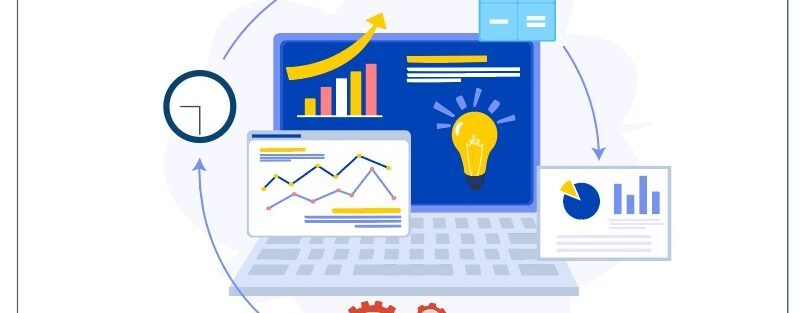In today’s digital age, the role of technology in business operations has become increasingly crucial. Among the various technological advancements, accounting software stands out for its significant impact on financial accuracy and the auditing process. This blog delves into how accounting software enhances accuracy and facilitates auditing, transforming the financial landscape for businesses of all sizes.
Enhancing Financial Accuracy
- Reduction of Human Error: Manual data entry is susceptible to errors, which can lead to inaccuracies in financial records. Accounting software automates data entry, reducing the likelihood of human error. Automated processes ensure that transactions are recorded accurately, enhancing the overall reliability of financial data.
- Real-Time Data Processing: With accounting software, financial transactions are processed in real-time. This means businesses have immediate access to up-to-date financial information, allowing for more informed decision-making. Real-time processing ensures that financial statements reflect the most current data, providing a clear picture of the company’s financial health.
- Consistent Record-Keeping: Accounting software maintains consistent and organized records of all financial transactions. This consistency helps in tracking income, expenses, assets, and liabilities accurately. Having well-organized records is crucial for ensuring financial accuracy and simplifies the management of financial data.
- Automated Reconciliation: Reconciling accounts manually can be a time-consuming and error-prone process. Accounting software automates reconciliation by comparing internal records with bank statements, identifying discrepancies, and facilitating their resolution. This automation ensures that financial statements are accurate and up-to-date.
Facilitating the Auditing Process
- Efficient Data Retrieval: One of the primary benefits of accounting software is the ease of data retrieval. Auditors can access financial records quickly and efficiently, reducing the time spent on gathering data. This efficiency allows auditors to focus more on analyzing the data rather than collecting it.
- Comprehensive Audit Trails: Accounting software provides detailed audit trails that track all changes made to financial records. These trails include information on who made changes when they were made, and what changes were implemented. This level of detail ensures transparency and accountability, making it easier for auditors to verify the integrity of financial data.
- Regulatory Compliance and Reporting: Many accounting software solutions come equipped with features that ensure compliance with financial regulations and standards. These features help businesses generate accurate reports that meet regulatory requirements, simplifying the compliance process. Accurate reporting enhances the credibility of financial statements and reduces the risk of non-compliance penalties.
- Advanced Analytical Tools: Modern accounting software includes advanced analytical tools that help auditors identify trends, anomalies, and potential issues within financial data. These tools enable auditors to conduct thorough and efficient analyses, improving the overall quality and effectiveness of the audit process.
Autocounts significantly enhance financial accuracy by automating data entry and calculations, thereby reducing human errors and ensuring consistent, precise financial records. Additionally, it streamlines the auditing process by providing real-time access to comprehensive financial data, facilitating thorough and efficient audits. Overall, it empowers businesses with reliable financial management and auditing processes, fostering greater trust and efficiency in their financial operations.
Conclusion
The adoption of accounting software offers significant advantages for businesses in terms of financial accuracy and auditing efficiency. By automating data entry, processing transactions in real-time, and maintaining consistent records, accounting software ensures that financial information is accurate and reliable. Additionally, features like automated reconciliation, detailed audit trails, and advanced analytical tools facilitate a more efficient and effective auditing process.
As technology continues to evolve, the capabilities of accounting software will only expand, further transforming financial management and auditing practices. Businesses that embrace these technological advancements will be better positioned to maintain accurate financial records, ensure regulatory compliance, and achieve long-term success.

